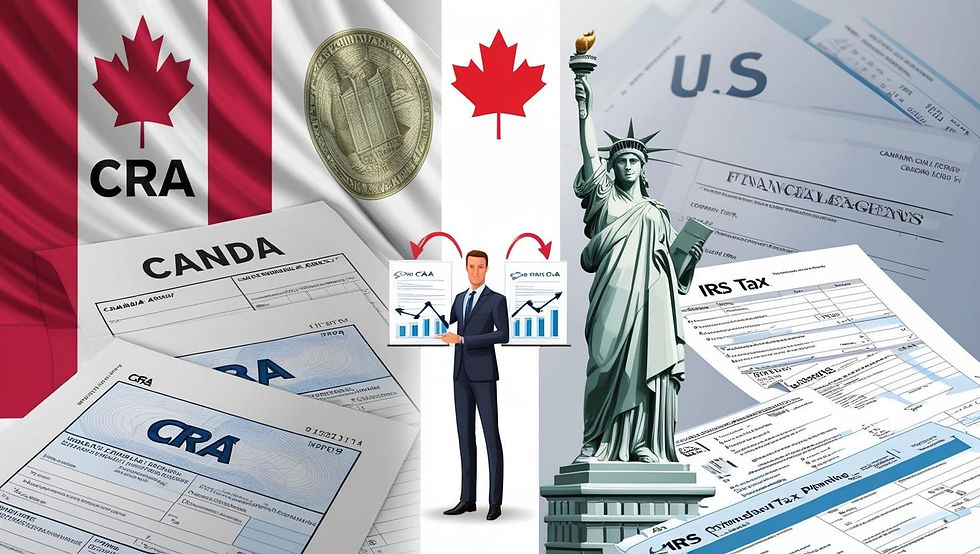Navigating Taxation for Canadian Expats: How to Optimize Your Financial Strategy
- cardinalpointwealt2
- May 9, 2025
- 2 min read
For expatriates from Canada, taxation while abroad is a sensitive but important aspect of one's finances. How the Canadian and host nation taxation systems interact can be confusing.
Knowing how to maximize your tax plan is a crucial part of financial planning for Canadian expats, helping you stay economically robust while remaining compliant with both domestic and foreign regulations.
Knowing Your Residency Status and What It Means—
One of the first concerns for Canadian expats is understanding their residency status. Canada taxes residents on worldwide income, but non-residents are taxed only on Canadian-sourced income. By establishing whether you fit the definition of a non-resident for tax purposes, you can potentially save thousands.

Maximizing the Benefits of Tax Treaties—
Canada has signed many tax treaties with foreign nations to avoid double taxation. These tax treaties usually permit exemption or tax credits for host country taxes paid. Knowing the individual tax treaty between Canada and your host nation can result in huge savings.
Managing the RRSP and TFSA—
For Canadian expatriates, paying attention to tax-favored accounts such as the RRSP (Registered Retirement Savings Plan) and TFSA (Tax-Free Savings Account) is crucial. Contributing to an RRSP will still be tax-deductible in Canada, but you will have to observe both Canadian and host country tax laws.
Managing Foreign Income and Investments—
Expats often have income and investments in multiple countries, creating a unique set of tax obligations. Understanding the nuances of reporting foreign income, dividends, and capital gains is essential to avoid penalties.
Estate Planning and Inheritance Considerations—
Cross-border estate planning is vital for Canadian expats. With different estate tax rules in Canada and abroad, it’s important to structure your estate to minimize potential tax liabilities.
Consulting With Cross-Border Tax Experts—
Because tax law on an international scale can be intricate, it is best to seek the advice of an expert. A cross-border tax professional can offer customized guidance.
Conclusion:
Maximizing your financial plan as a Canadian expat needs active planning and thorough knowledge of foreign tax regimes. By using tax treaties, diversifying your investments, etc, you can minimize your taxes. For further discussion, consult a reputable Canadian-U.S. wealth management firm.




Comments